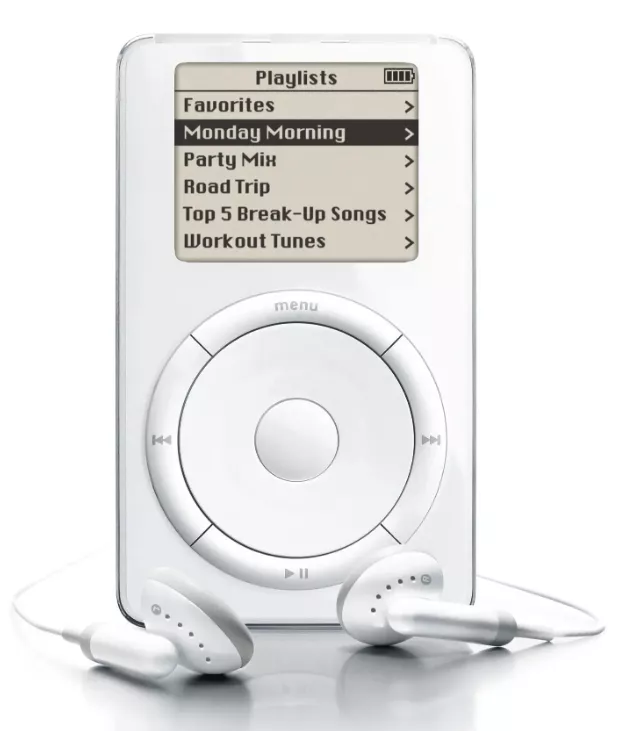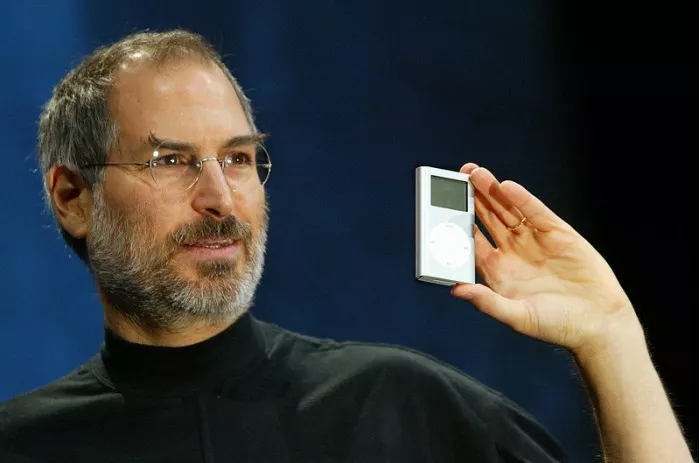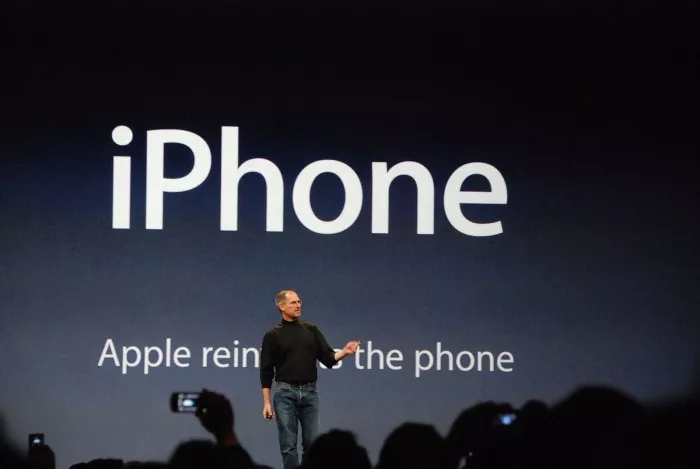On May 11, Beijing time, iPod, an epoch-making music player, is about to become history On Tuesday, apple officially said goodbye to the iPod and announced that it had gradually stopped producing the iPod touch, ending this 20-year-old product line. The iPod inspired the development of the iPhone and helped Silicon Valley become the center of global capitalism

Early iPod
Apple reassured users that music will not disappear, and the company will mainly ensure this in the future through the iPhone launched in 2007 and the apple music music service launched seven years ago. Apple music also proves users' modern preferences. Today, the era of buying and owning 99 cent songs on the iPod has basically given way to a monthly subscription service that provides a wider music catalog.
Accidental explosive
Apple's initial goal for the iPod was not high. The company just wanted to create a music product to attract people to buy more Macs. However, in a few years, it changed the consumer electronics and music industries and led apple to the path of the world's most valuable company.
In October 2001, this pocket sized rectangular device made its debut. White appearance, polished stainless steel shell, weighing 6.5 ounces. Its appearance adopts a custom color, moon gray, can store 1000 songs, and is equipped with white headphones.
In the following years, it quickly became popular and created the so-called "iPod generation". For most of the first decade of the 21st century, people wore headphones on their ears when traveling around the world. Another segment of headphones was the iPod. At that time, iPods were everywhere.
IPod integrates unparalleled industrial design, hardware engineering, software development and services, providing a blueprint for Apple's development in recent decades. It also shows that the company rarely takes the lead in launching new products, but often succeeds.
In the late 1990s, the first digital music player began to appear. The earliest version could hold dozens of songs, allowing those who had earlier copied CDs to computers to transfer them to their pockets.
Jobs contributed a lot
Steve Jobs returned to apple in 1997 after being expelled from apple more than 10 years ago. He believes that this emerging field is an opportunity to give Apple's traditional computer business a modern appeal. As a hard core music fan, he listed the Beatles and Bob Dylan as one of his favorite artists. Jobs believes that people's love of music will help persuade them to switch from Microsoft system driven personal computers to Macs. At that time, the PC market share supported by Microsoft system exceeded 90%.
"You don't need to do any market research," said Jon Rubinstein, who was in charge of Apple engineering at the time. "Everyone loves music."

Rubinstein found a new hard disk produced by Toshiba during a trip to Japan, which promoted the development of iPod. At that time, the 1.8-inch hard disk could store 1000 songs. In essence, it makes it possible to develop a digital player the size of Sony Walkman, which has a larger capacity than any player already on the market.
The development of the iPod coincided with Apple's acquisition of a company with MP3 software, which later became the foundation of iTunes. ITunes is a digital jukebox used to organize people's music libraries so that they can quickly create playlists and transfer songs. It was it that drove jobs' vision of how people buy music in the digital age.
"We think people want to buy music on the Internet by downloading, just as they buy vinyl records, tapes and CDs," Jobs said in a speech in 2003
At that time, a music sharing service called Napster was tormenting the music industry, allowing people to share any song with anyone around the world for free. When promoting the ability of the new Mac to copy CDs, jobs made such a business slogan: "rip, mix, burn". According to ALFY galuten, an executive of Universal Music Group at that time, the movement put the music industry on Apple's side.
Gruten said the record company finally agreed to let Apple sell songs on iTunes for 99 cents. "We made concessions because we had no chips," gruten said. "The easiest way to combat piracy is to provide convenience."
The first generation iPod sold for $399, which limited market demand, with less than 400000 units sold in the first year. Three years later, Apple released the iPod mini, which uses an aluminum shell and weighs 3.6 ounces. It has four colors: silver, gold, pink, blue and green. It can store 1000 songs and costs $249. Suddenly, sales soared. By the end of the fiscal year ended September 2005, iPod sales had reached 22.5 million.
Apple continues to expand the influence of iPod Mini in windows The launch of iTunes on the computer has enabled apple to introduce its iPod to millions of new users. Former Apple executives said that although the move was later hailed as a commercial success, jobs resisted it at that time.
Soon, the iPod became ubiquitous. "It took off like a rocket." Rubinstein said.
Nevertheless, jobs still asked apple to make the iPod smaller and more powerful. Rubinstein said the company discontinued its most popular product ever, the iPod mini, and replaced it with a thinner nano, starting at $200. Nano helped Apple almost double iPod sales in the second year to 40 million.
Biggest contribution: catalyst for iPhone
Perhaps the most important contribution of the iPod is that it became the catalyst for the birth of the iPhone. As mobile phone manufacturers begin to introduce phones that can play music, Apple executives worry that the iPod will be overtaken by better technology. Jobs believes that if this happens, it should also be done by apple.
The iPhone continues to take advantage of the combination of software and services that made the iPod successful. ITunes allows users to back up their iPhones and put music on their devices, and its success echoes the development of the app store. The app store allows users to download and pay for software and services.

In 2007, apple abandoned its long-standing company name, apple computer, and became a simple Apple company. After six years of brewing, an electronic giant is emerging.
"They showed the world that they had an atomic bomb and five years later they had a nuclear arsenal," said Talal shamoon, CEO of digital rights management company Intertrust technologies, which was working with the music industry. "After that, there is no doubt that Apple will have everyone."
According to Loup ventures, a venture capital firm specializing in technology research, about 450 million iPods have been sold since its launch in 2001. But last year, Apple sold only 3 million iPods, dwarfing the 250 million iPhone sales. The shutdown of iPod is only a matter of course.